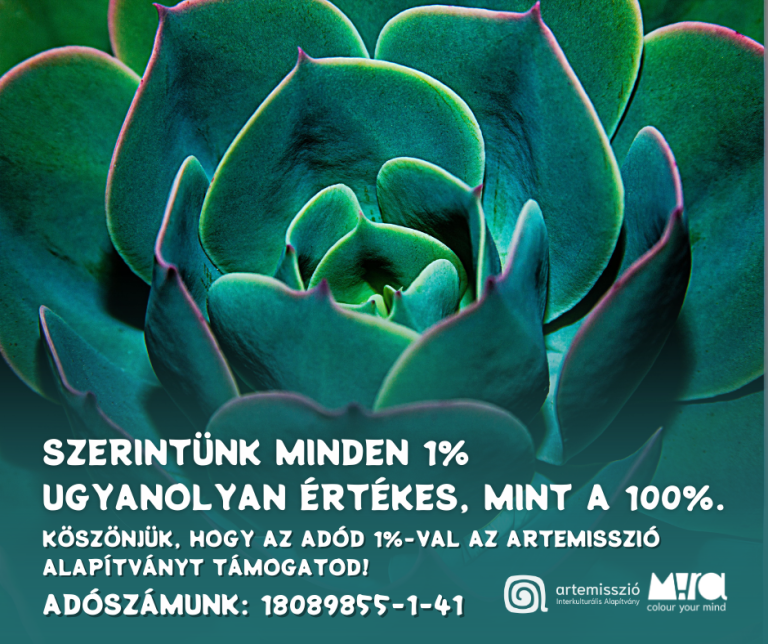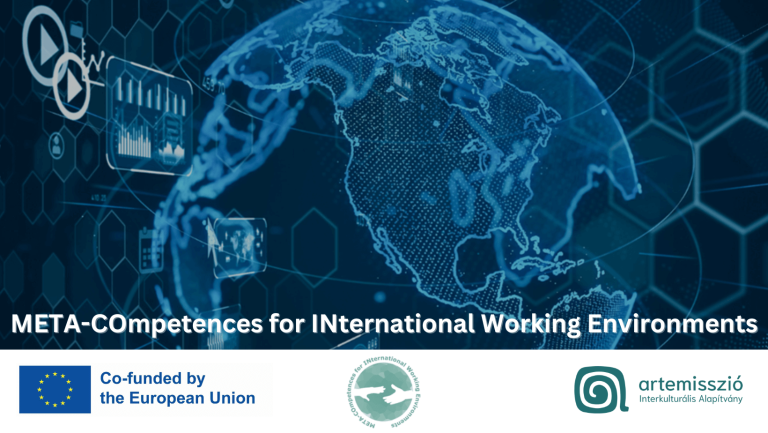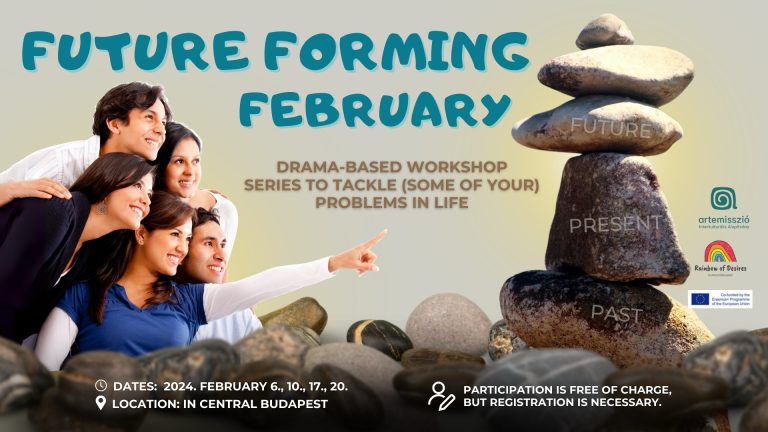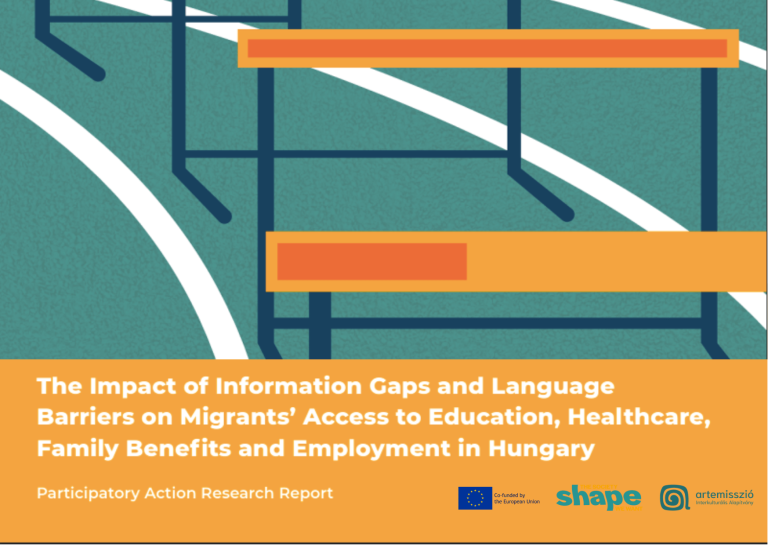AKTUALITÁSOK
Támogass
Szerintünk minden 1% ugyanolyan értékes, mint a 100%. Ha Te is így látod, kérjük, támogasd az Artemisszió munkáját adód 1 százalékával! Az Artemisszió Alapítványnál már 26 éve dolgozunk azon, hogy a sokszínűség minél többeknek jelentsen értéket és a különböző kultúrából származó emberek ne szenvedjenek hátrányt.
Mira, Önkéntesség
Cilem, our volunteer from Turkey came to work with us through the European Solidarity Corps (ESC) framework. Read a short interview about her experiences and watch her video! How I Decided to Come Here: I’ve been actively working as a volunteer since I started university in Turkey. The main focus of my volunteer activities has … Read more
Módszertan
A kézikönyv egyrészt bevezető a meta-készségekről, azok fontosságáról olyan munkahelyi környezetekben, amiket az állandó változások határoznak meg. Másrészt olyan gyakorlatokat gyűjt össze, amelyek inspirálóak azok számára, akik szeretnék a meta-készségeket beépíteni képzési stratégiájukba. A kézikönyv itt érhető el.
Alkalmazott művészet, Képzés, Módszertan
Do you experience situations in your life where you get confused about what exactly you should do? Perhaps you are sometimes puzzled about what you really want, or you do know your aims, but for some reason are not able to achieve them? These kinds of situations happen to all of us, and they are … Read more
Mira
Alig egy hónapja, a Formabontások elnevezésű konferencián ismertettük a bevándorlók és menekültek részvételével végzett kutatásunk eredményét, ahol kiderült, hogy számukra az információhiány és a nyelvi akadályok jelentik a legnagyobb kihívást a mindennapi élet, a hivatali ügyintézés és a hazai szolgáltatások igénybevétele során. Óriási öröm számunkra, hogy ilyen rövid idő elteltével is fontos, pozitív előre lepésről … Read more
Migráció, Módszertan, Részvételiség
This Participatory Action Research Report delves into the challenges faced by third-country national migrants residing in Hungary, focusing on employment, language proficiency, healthcare, and family support. The research is based on a Participatory Action Research Project conducted by 12 migrants living in Hungary supported by Artemisszió Foundation, aiming to effect change locally and nationally. The … Read more
Migráció, Részvételiség
SHAPE projektünk keretében készítettünk 2 összefoglalót a kétéves projektünk során felhalmozott jó gyakorlatokról: a bevándorlók által végzett részvételi akciókutatásról, és az önkormányzati dolgozóknak és döntéshozóknak tartott „SHAPE Academy” képzésről. Az AMIF európai alap által finanszírozott SHAPE projekt célja, hogy elősegítse a bevándorlók és menekültek részvételét a demokratikus folyamatokban, valamint az integrációs politikák kialakításában és végrehajtásában … Read more
Migráció
A felnőtté válás története, amelyben a düh, a félelem és a szorongás átadja helyét az önmagunkról és a világról alkotott új látásmódnak. Amikor a vallást nem gyakorló fiúk és lányok az iskola számára kellemetlenséget okoznak, az igazgató úgy dönt, hogy az év végi koncertre egy zenetanárhoz osztja be őket. Ez az L’Ora Alternativa “Alternatív óra” … Read more
Csatlakozz
Az Artemisszió Alapítvány keresi új munkatársát nemzetközi projektkoordinátor pozícióba Az Artemisszió Alapítvány több, mint 25 éve dolgozik azon, hogy Magyarországon egy együttműködő, szolidáris társadalom jöjjön létre, ahol a sokszínűség érték, és a hátránnyal indulók is esélyt kapnak. Célul tűztük ki a különböző kulturális, etnikai és társadalmi csoportok közötti párbeszéd és közeledés erősítését, a kölcsönös … Read more














